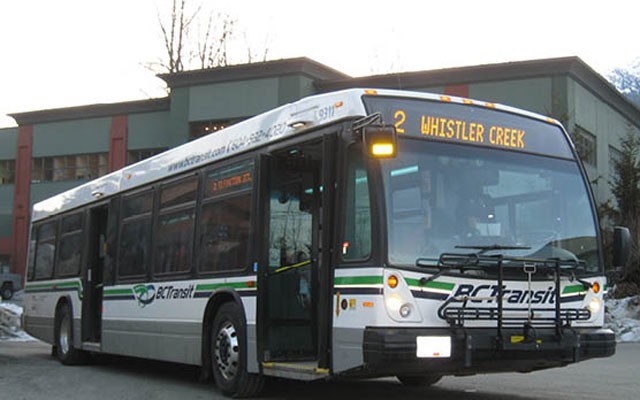After one season of operation, a pilot project offering free late-night shuttles to staff housing for Whistler Blackcomb (WB) employees is being deemed a success.
The shuttle was offered between Dec. 20, 2014 and March 31, 2015.
Presenting to Whistler council on July 7, WB's VP of employee experience Joel Chevalier noted that over 38,400 free rides were taken — a ridership increase of 330 per cent over the same period last winter.
Chevalier said WB was happy with the project on a few levels, first and foremost for the fact that there were no vehicle/pedestrian conflicts late at night on the road while the free shuttle was running.
"That was the big win. As a safety initiative it definitely hit the mark, so we were happy with that," Chevalier said.
"Secondly, from a community responsibility perspective, we had large players like the Fairmont and Moe Joe's and Gibbons Life step up to be active partners. It was very inspiring on a community involvement level."
The cost of the project was about $31,000, with WB paying $20,000 and the other three partners contributing the rest.
The jump in late night ridership numbers and the elimination of pedestrian conflict are important to WB. In 2012, the body of WB employee David Christian was found in Horstman Creek. Christian had lost his way home after a night of drinking and succumbed to hypothermia.
"He was one of our staff members, and so this was one of those ways that we've been talking about in terms of how do we prevent that from happening again," Chevalier said. "Based on the ridership numbers that we've seen and the statistics in terms of when people are riding and who it is, it just seems to be going in the right direction for sure."
Moses Chew, director of human resources at the Fairmont Chateau Whistler welcomed the success.
"When we were approached with the opportunity to pilot this program, it was an easy 'yes' for us," he said. "The safety of the 300 tenants in our Fairmont Glacier Staff Housing is a high priority and we're pleased to give them a safe option to commute in the early and late hours of the day. And to partner with responsible companies like WB, Moe Joe's and Gibbons Life shows our commitment to our staff."
Whistler Mayor Nancy Wilhelm-Morden was impressed with the usage numbers.
"That statistic is amazing about the usage increasing over 300 per cent compared to the previous winter. That number kind of says it all, doesn't it?" she said.
"It gives the employees a break, but more importantly it promotes safety, so I'm pleased to see that the recommendation is to work with our partners to run that program again."
The project was targeted at the more than 1,000 residents that live in Glacier Staff Housing — the majority are aged 20 to 25 and are employees of WB and the Fairmont.
On the WB operational side of things, feedback from the snowmaking and grooming department indicates there were fewer pedestrian interactions on the ski run to the village during night shifts. The safety department reported zero injuries or near misses from pedestrians on the ski run late at night.
Feedback from those using the service indicated the majority of people were grateful for the safe, free transportation.
Moving forward, Chevalier said he'd like to see the project expanded so that it starts earlier in the fall and runs later into the spring.
"The goal is to do it again this year and the goal is to do it on a broader scope," Chevalier said.




